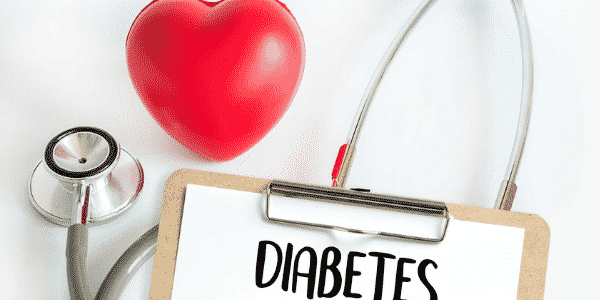Hyperphagia (Pathologic Hunger): Essential Information for You
If you’ve been feeling persistently hungry no matter how much you eat, you may be dealing with a condition called hyperphagia, often linked to diabetes and thyroid disorders. This intense, ongoing urge to eat can disrupt your daily routine and leave you wondering what’s really going on in your body. In this ultimate guide, you’ll learn how to recognize the warning signs, why it happens, and how to manage it so you can confidently take charge of your health.
Understand The Basics Of Hyperphagia
What Is Hyperphagia?
Sometimes called “polyphagia,” this term describes an excessive or relentless appetite that leads you to eat more than your body truly needs. According to the Cleveland Clinic, it frequently appears alongside chronic health problems such as diabetes or thyroid issues. You might also see it referred to as “pathologic hunger,” highlighting how it goes beyond normal, everyday cravings.
Why It Matters
Persistent hunger can be a red flag for underlying issues that require medical attention, including uncontrolled blood sugar or hormone imbalances. If you have Type 1 diabetes, you might also want to learn about the Somogyi effect and LADA diabetes because they can cause confusing shifts in blood sugar levels. Knowing the reasons behind your hunger helps you seek help quicker and make informed decisions about your treatment.
Explore Common Causes of Hyperphagia
Diabetes And Insulin Issues
One of the most common culprits is poorly managed diabetes. Your body struggles to use glucose properly, so it remains in your bloodstream instead of fueling your cells. Low insulin levels or improper insulin use can leave you exhausted and looking for energy from extra food. Whether you have Type 1 or Type 2 diabetes, this perpetual hunger might be your body’s way of signaling that something’s off.
Thyroid Irregularities
Having an overactive thyroid (hyperthyroidism) can also provoke hunger spikes. When you produce too many thyroid hormones, your metabolism revs up, and you may feel the need to eat nonstop to keep pace with your body’s increased energy demands. Conditions like Graves’ Disease often revolve around these hormonal shifts.
Emotional Factors
Stress, anxiety, and depression sometimes nudge you toward the fridge. Overeating can become a way to cope, even if you’re not truly hungry. If you notice that your cravings seem closely tied to your mood, consider speaking with a mental health professional who can help you sort out emotional triggers.
Recognize Key Symptoms
Physical Indicators
Beyond unending hunger, you might encounter other red flags such as sudden weight changes or ongoing fatigue. While some people gain weight, others experience unexplained weight loss, especially when undiagnosed diabetes is to blame. You might also spot additional symptoms if you have other blood sugar concerns, including episodes of reactive hypoglycemia.
Nighttime Appetite Surges
Do you find yourself waking up to grab a late-night snack? Nighttime eating can be a strong sign that your hormones aren’t balanced. It’s essential to keep track of these behaviors, as they often offer clues about how your body is regulating hunger around the clock.
Behavioral Signs
Heightened food obsession, hoarding snacks for later, or repetitive thoughts about eating typically point to an internal imbalance. In some cases, you could even end up eating faster than usual or feeling upset if you can’t access food, both of which indicate a deeper issue rather than casual overeating.
Diagnose It Properly
Proper diagnosis starts with a frank conversation with your healthcare provider. They’ll usually perform:
- Blood tests to check blood sugar levels and thyroid hormone activity.
- A review of your medical history to rule out other health conditions.
- A discussion about your emotional health and possible stressors, since mood imbalances can amplify your appetite.
Your doctor may also test for related disorders and watch for signs of polyphagia, especially if you exhibit classic diabetes symptoms like extreme thirst (polydipsia) or frequent urination.
Manage Hyperphagia Effectively
Medical Interventions
If you’re diagnosed with diabetes, controlling your blood sugar is priority number one. That often includes insulin injections for Type 1 or specific medications and lifestyle changes for Type 2. According to the Cleveland Clinic, once your underlying condition is under control, your extreme hunger usually diminishes.
For thyroid-related conditions, your healthcare team may adjust your hormone levels through medications that bring things back into balance.
Lifestyle And Diet Changes
A structured eating plan can make a huge difference. You might focus on balanced meals with quality proteins, fiber, and healthy fats to keep you feeling full. Drinking plenty of water cuts down on mindless snacking and helps your body run smoothly. Regular exercise supports overall metabolism and blood sugar stability.
Support And Monitoring
Staying on top of your journey often means collaborating with a dietitian, a therapist, or a support group. Emotional wellness plays a big role here. If stressors or negative thought patterns fuel your eating, you might benefit from counseling or mindfulness techniques. Keeping a daily food journal can also highlight triggers and help you track progress over time.
Summing Up Key Points – Hyperphagia Treatments
- Excessive appetite can be a warning sign of deeper health conditions such as diabetes or thyroid disorders.
- Managing blood sugar, hormones, and emotional well-being can help rein in unplanned snacking and persistent hunger pangs.
- Seeking professional help leads to targeted treatments, whether that involves medications, lifestyle tweaks, or emotional support.
Frequently Asked Questions
- Can hyperthyroidism really increase my appetite so much?
Yes. When your thyroid glands are overactive, your metabolic rate spikes. This can create an almost insatiable need for food. - Will my extreme hunger go away once I manage my diabetes?
In many cases, yes. Getting blood sugar levels under control often reduces that persistent need to eat. - Is hyperphagia the same as binge eating?
They can appear similar, but hyperphagia focuses on continuous biological drive, while binge eating can be tied more to emotional patterns or stress. - Should I track my moods if I suspect emotional triggers?
Absolutely. Keeping a record of how you feel can reveal key patterns and help you address emotional drivers behind your appetite. - Do I need genetic testing?
Some individuals may require it, especially if there’s a suspicion of underlying hormonal or metabolic conditions. Talk with your healthcare provider to determine whether it’s necessary.
If you suspect an excessive appetite is more than just routine hunger, don’t hesitate to reach out to a healthcare professional. A thorough evaluation can pinpoint the problem and set you on a path to feeling balanced again.








Leave a Reply